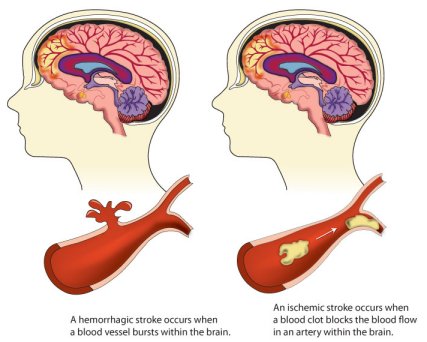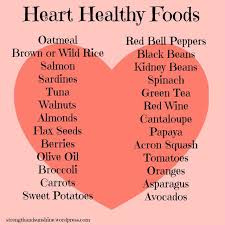
Diagnosed with Cancer? Your two greatest challenges are understanding cancer and understanding possible side effects from chemo and radiation. Knowledge is Power!
Learn about conventional, complementary, and integrative therapies.
Dealing with treatment side effects? Learn about evidence-based therapies to alleviate your symptoms.
Click the orange button to the right to learn more.
- You are here:
- Home »
- Blog »
- non-conventional therapies »
- Atrial Fibrillation Caused by Idarubicin-
Atrial Fibrillation Caused by Idarubicin-

In the subgroup analyses, an inverse association between green tea consumption and risk of stroke was identified among younger, non-hypertensive, and non-diabetic men. Higher consumption of green tea was inversely associated with stroke risk in middle-aged and older Korean men…”
Hi David- I have AFIB caused by idarubicin, my first dose of chemo for my APL leukemia. I’m 6 years in remission but still dealing with this horrible “side effect”. My doctor wants me to take Xarelto or Eliquis but the side effects of either one of those could be disastrous.
In your opinion would a vegan diet be better than a Mediterranean diet? I appreciate any ideas you have on this. Thanks for what you’re doing because yours is the first group that I’ve seen that is talking about this. Ida
Hi Ida-
Your situation sounds similar to mine- Atrial Fibrillation caused by chemotherapy. I was prescribed warfarin as a blood thinner and metoprolol to reduce BP but side effects from each were difficult for me.
It is true that Atrial fibrillation increases the risk of a stroke. And I also agree that FDA blood thinners will reduce our risk of a blood clot and or stroke.
However, there are evidence-based but non-conventional therapies shown to also reduce our risk of blood clot and stroke.
I tried eating a vegan diet awhile back but found the diet to be problematic for many reasons. I consider myself to be almost vegetarian. Yes, I consider the Mediterranean Diet to be a good diet for heart health.
I supplement for heart health and minimize problems with my atrial fibrillation as well. What I do and have been doing for years is
- omega-3 fatty acids,
- wobenzyme N (enzymes),
- nattokwinase,
- curcumin,
- green tea extract,
- almost a vegetarian diet,
- daily exercise (but nothing strenuous of course)-
all to say I live a heart-healthy lifestyle. I live comfortably with my atrial fibrillation aka Afib.
Let me know if you have any other questions.
Hang in there,
David Emerson
- Cancer Survivor
- Cancer Coach
- Director PeopleBeatingCancer
Recommended Reading:
- Got Heart Failure? Get Brain Training, Exercise, Supplements, Diet
- Heart Failure + Surgery = Higher Risk of Death
- Chemo-Induced Heart Failure-Cardiac Rehabilitation- Omega-3 fatty acids
The Mediterranean Diet and Cardiovascular Health
“The Mediterranean diet (MedDiet), abundant in minimally processed plant-based foods, rich in monounsaturated fat from olive oil, but lower in saturated fat, meats, and dairy products, seems an ideal nutritional model for cardiovascular health. Methodological aspects of Mediterranean intervention trials, limitations in the quality of some meta-analyses, and other issues may have raised recent controversies. It remains unclear whether such limitations are important enough as to attenuate the postulated cardiovascular benefits of the MedDiet…” atrial fibrillation
Nattokinase: A Promising Alternative in Prevention and Treatment of Cardiovascular Diseases
“Cardiovascular disease (CVD) is the leading cause of death in the world and our approach to the control and management of CVD mortality is limited. Nattokinase (NK), the most active ingredient of natto, possesses a variety of favourable cardiovascular effects and the consumption of Natto has been linked to a reduction in CVD mortality. Recent research has demonstrated that NK has potent fibrinolytic activity, antihypertensive, anti-atherosclerotic, and lipid-lowering, antiplatelet, and neuroprotective effects. This review covers the major pharmacologic effects of NK with a focus on its clinical relevance to CVD. It outlines the advantages of NK and the outstanding issues pertaining to NK pharmacokinetics. Available evidence suggests that NK is a unique natural compound that possesses several key cardiovascular beneficial effects for patients with CVD and is therefore an ideal drug candidate for the prevention and treatment of CVD. Nattokinase is a promising alternative in the management of CVD…”
Curcumin prevents strokes in stroke-prone spontaneously hypertensive rats by improving vascular endothelial function
“Background– Antioxidants have shown great promise in stroke prevention. Diarylheptanoids (also known as diphenylheptanoids) are a small class of plant secondary metabolites that possess antioxidant activity greater than that of α-tocopherol. Curcumin is the best known member and is mainly extracted from turmeric. This study aimed to explore whether curcumin has a preventive effect on stroke.
Methods-Stroke-prone spontaneously hypertensive rats (SHRsp) were randomly divided into control group (n = 10) and curcumin group (n = 10), and saline or curcumin (100 mg/kg/day) was administrated daily. Vascular endothelial function was examined by the relaxation of the artery in response to acetylcholine (ACH). The levels of reactive oxygen species (ROS) and nitric oxide (NO) were measured by using dihydroethidium (DHE) and 4, 5-diaminofluorescein (DAF-2 DA), respectively. The expression of uncoupling protein 2 (UCP2) was examined by RT-PCR and immunoblotting.
Results-Administration of curcumin significantly delayed the onset of stroke and increased the survival of SHRsp, which was ascribed to decreased ROS and improved endothelial dependent relaxation of carotid arteries. In the presence of UCP2 inhibitor genipin, both curcumin-mediated decrease of ROS and increase of NO production were blocked.
Conclusion- Our study suggests that curcumin exerts a stroke preventive effect by attenuating oxidative stress to improve vascular endothelial function, which might be associated with UCP2 signaling.” atrial fibrillation
Physical Activity in the Prevention and Treatment of Stroke
“The role of physical activity in the prevention of stroke is of great interest due to the high mortality and significant impact of stroke-related morbidity on the individual and on healthcare resources. The use of physical activity as a therapeutic strategy to maximise functional recovery in the rehabilitation of stroke survivors has a growing evidence base.
This narrative review examines the existing literature surrounding the use of exercise and physical therapy in the primary and secondary prevention of stroke. It explores the effect of gender, exercise intensities and the duration of observed benefit. It details the most recent evidence for physical activity in improving functional outcome in stroke patients. The review summaries the current guidelines and recommendations for exercise therapy and highlights areas in which further research and investigation would be useful to determine optimal exercise prescription for effective prevention and rehabilitation in stroke…”
Association between Green Tea Consumption and Risk of Stroke in Middle-Aged and Older Korean Men: The Health Examinees (HEXA) Study
“Green tea consumption is known to have varying effects on health and disease. The aim of this study was to investigate the association between green tea consumption and risk of stroke in Korean adult men.
Data were obtained from the Health Examinees (HEXA) Study, which included 50,439 subjects aged 40 years and older. Information regarding dietary intake was collected from semi-quantified food frequency questionnaires consisting of 106 items. Green tea consumption was categorized as none, <1 cup/d, 1 to <3 cups/d, and ≥3 cups/d. Binary logistic regression models were used to estimate odds ratios (OR) and 95% confidence intervals (CIs) to examine a possible association between green tea consumption and risk of stroke by controlling for potential confounders. Subgroup analyses by age, body mass index, hypertension, diabetes mellitus, smoking status, and alcohol consumption were also performed.
Compared with green tea non-drinkers, individuals that consumed 1 to <3 cups/d or ≥3 cups/d of green tea had multivariable adjusted OR (CI) of stroke of 0.75 (0.59~0.97) and 0.62 (0.39~0.98), respectively, after adjusting for age and various confounders.
In the subgroup analyses, an inverse association between green tea consumption and risk of stroke was identified among younger, non-hypertensive, and non-diabetic men. Higher consumption of green tea was inversely associated with stroke risk in middle-aged and older Korean men…”


